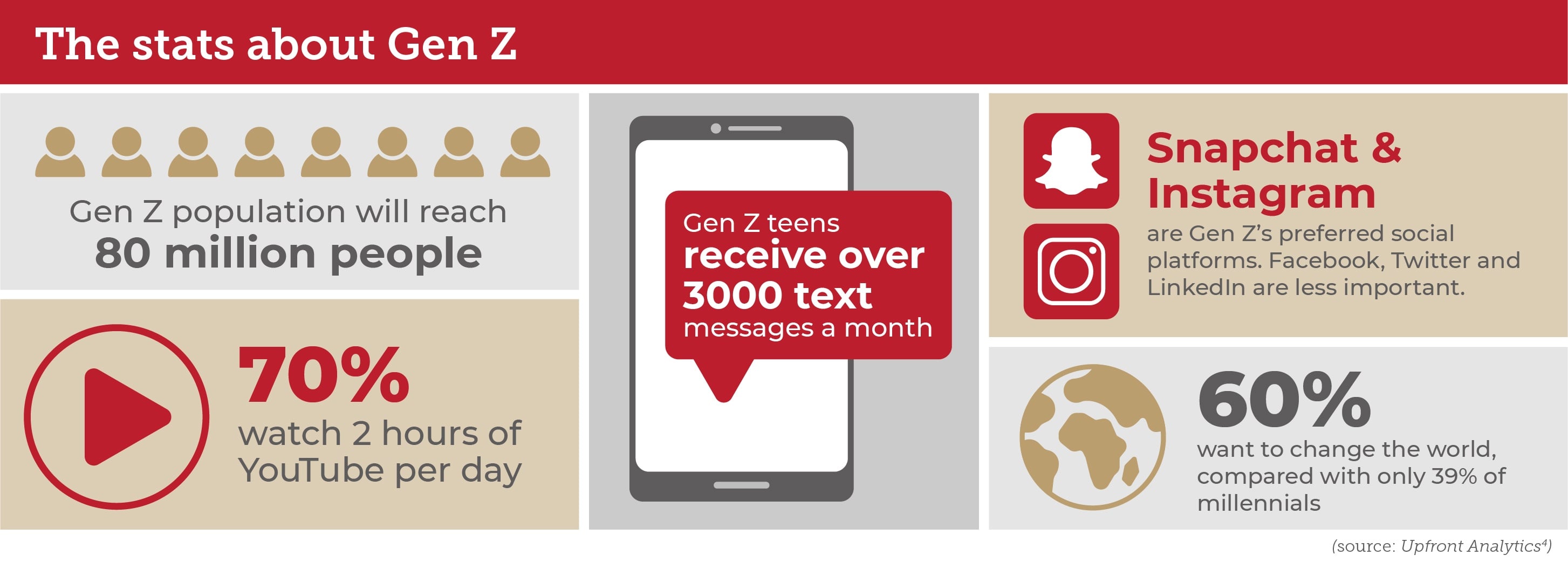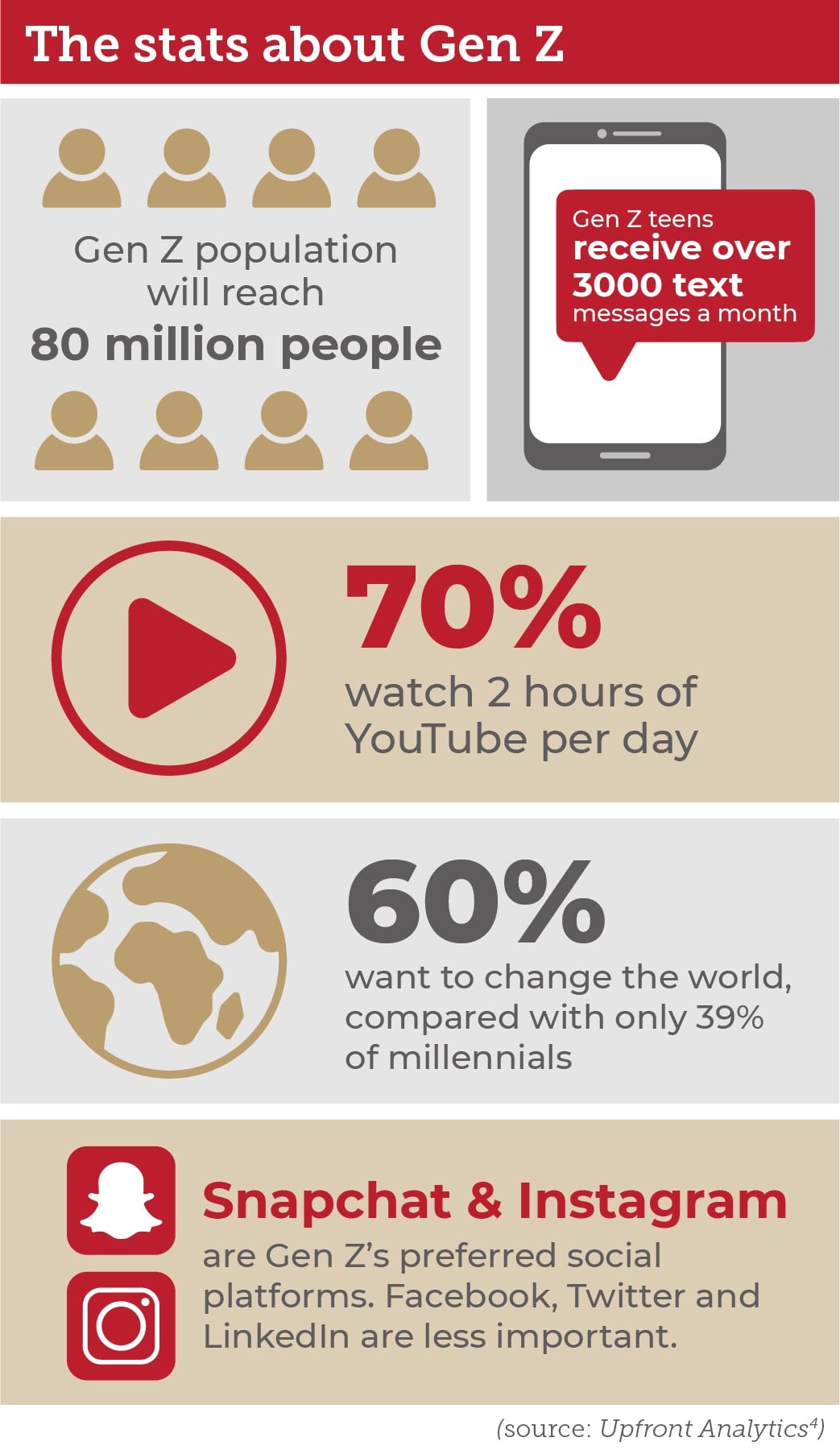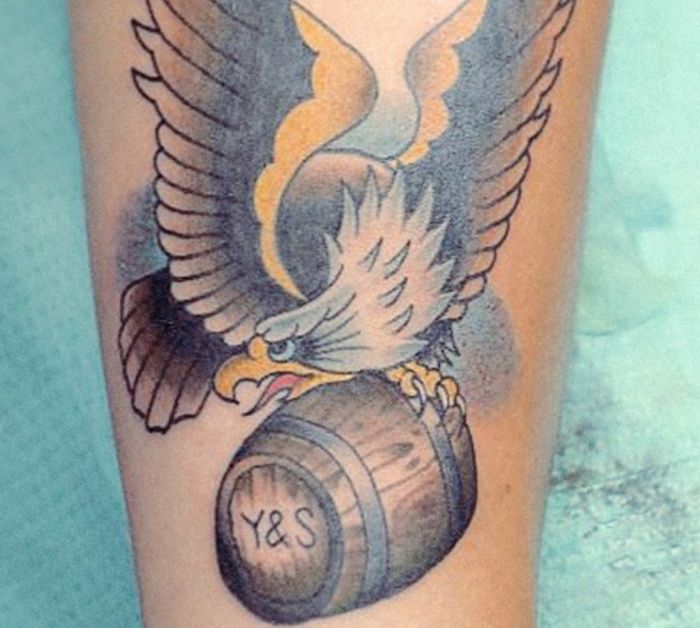Who is Generation Z?
By 2020, Generation Z is projected to represent the largest generation of consumers in the US.1 This generation, roughly defined as those born between 1996 and 2012, is the first to have had easy access to and have used technology their entire lives. Gen Z demands authenticity, a sense of shared values and quick, effective content from their brands: they make decisions quickly based on what they see on their mobile devices, and it is vital that brands provide individualized targeted content that speaks directly to Gen Z’s needs and niche.
As the first generation to be born on mobile, Gen Z spends over 15 hours a week on their smartphones and looks to video content first.2 Some of their characteristics are a result of their age and life stage, but, like all generational differences, the unique context during which they are coming of age frames how they encounter the world. Gen Z is smart about attention and doesn’t waste time on content that isn’t meaningful to them. That means that brands only have a few seconds (recent estimates suggest on average just eight!) to convey their message, and it has to be direct, clear and quick, with no fluff or gimmicks.
Gen Z is highly tech-savvy and sophisticated about its digital use; they know their social media and they want it used right. Messaging should be crafted to the particular platform and what users expect from it; for example, more aspirational content may be more appropriate for Instagram, while Facebook content is expected to be rooted in news and information.3 As digital natives, they are invested in a more accessible and personal relationship with products and brands: they want to share beliefs with both the brand and those endorsing it, looking to influencers rather than actors to understand what the brand stands for. They want to know the brand. That means that content should be targeted and individualized, catering to the particular consumer across platforms and touchpoints.


Gen Z wants to stand for something, and they make purchasing decisions based on what they want to affiliate with and how it reflects their own beliefs. Brands need to make their own values clear and emphasize how their products represent these values, enrolling consumers in their vision and helping them stand for something based on their decisions. They are participatory in their media use and grew up on user-generated content. They see themselves as partners with their brands, and they want content that reflects that partnership.
Messaging should make clear how products can contribute to consumers’ long-term success and realization of their goals and beliefs, showcasing how the brand understands their unique needs. But Gen Z doesn’t want to be labeled or thought of as part of a group; content should emphasize individuality and deploy careful targeting to communicate authenticity, shared beliefs and partnership in something greater. In eight seconds or less.
As you consider your marketing strategy going forward, how will you create individualized content that communicates shared values with Generation Z?
Selected sources:



